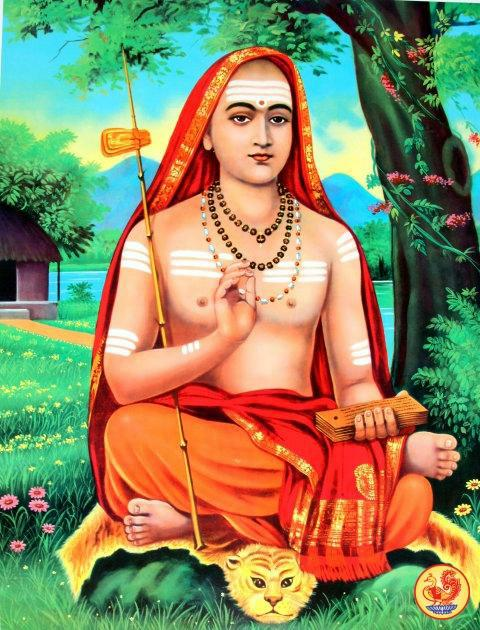Adi Shankara
Adi Shankara was a highly influential Indian Vedic scholar, philosopher, and teacher (acharya) of the 8th century CE. He is considered one of the most significant figures in the history of Indian philosophy, particularly for his development and systematization of the Advaita Vedanta
Adi Shankara's life and philosophy
Advaita Vedanta (Non-dualism) At the core of Shankara's teachings is the principle of non-duality. His famous statement, "Brahma Satyam, Jagat Mithya, Jivo Brahmaiva Na Aparah" translates to "Brahman (the Absolute Reality) alone is real, the world is illusory (or apparent reality), and the individual soul (Jiva) is non-different from Brahman."
He taught that the apparent multiplicity and distinctions in the world are due to Maya (illusion or ignorance), which veils the true, singular reality of Brahman.
Brahman and Atman: Shankara emphasized that the individual self (Atman) is identical to the supreme, universal reality (Brahman). Liberation (moksha) is achieved through the direct realization of this oneness, not through rituals or actions alone.
Role of Knowledge :He stressed Jnana Yoga, the path of knowledge and self-inquiry, as the primary means to liberation. This involves discrimination (Viveka) between the real and the unreal, detachment (Vairagya) from temporary worldly attachments, and an intense desire for liberation (Mumukshutva).
Commentaries (Bhashyas):Shankara is renowned for his systematic commentaries on the foundational texts of Vedanta, collectively known as the Prasthanatrayi: the Upanishads, the Bhagavad Gita, and the Brahma Sutras. His Brahmasutrabhashya is considered his masterpiece.
Prakarana Granthas: He authored philosophical treatises that served as introductory expositions to Advaita Vedanta, such as
Upadeshasahasri
Stotras (Devotional Hymns): While emphasizing knowledge, Shankara also composed numerous devotional hymns in praise of various deities (like Ganesha, Surya, Vishnu, Shiva, and Devi), acknowledging the role of Bhakti (devotion) in spiritual practice as a means to purify the mind.
UnifHe is traditionally credited with reconciling various Hindu sects (Vaishnavism, Shaivism, Shaktism, etc.) through the introduction of Panchayatana Puja, the simultaneous worship of five deities, arguing that all deities are different forms of the one Brahman.
Establishment of Mathas (Monasteries):He is believed to have founded four major monastic centers (mathas) in the four cardinal directions of India – Sringeri (South), Dwarka (West), Puri (East), and Badrinath/Jyotirmath (North). These centers played a crucial role in preserving and propagating Advaita Vedanta.
Dashanami Sampradaya: He is also regarded as the organizer of the Dashanami monastic order, which continues to be a significant part of Hindu monasticism.
While some aspects of his historical influence are debated by scholars (with some suggesting his popular image fully took shape centuries after his death), Adi Shankara's philosophical contributions are undeniable.
His teachings remain a cornerstone for understanding the nature of existence and the path to enlightenment within Hinduism, inspiring millions and shaping the spiritual and philosophical fabric of India.

Post a Comment